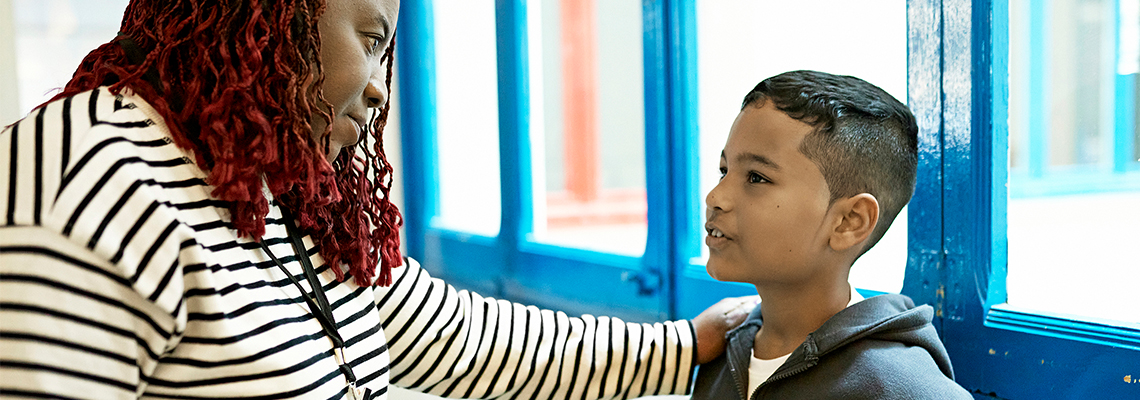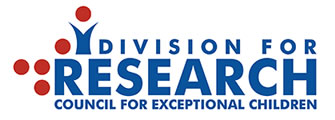
With the increased need for children’s mental health services, it is more important than ever to consider ways to promote positive mental health in children. Many families may be surprised to learn that universal strategies that support children’s mental health can take place at school.
Prevention
Universal programs are considered prevention because they are designed to decrease the chance of developing specific health or mental health conditions. Universal prevention programs benefit the whole population, regardless of background or risks for certain health or mental health conditions. For example, physical health programs that aim to increase exercise are beneficial for the entire population because they play a role in prevention of health conditions (e.g., obesity) and promote emotional wellness (e.g., stress management, mood). Universal prevention is different than treatment because the strategies are appropriate for everyone, whereas treatment is provided after the start of a condition or illness.
Universal Mental Health Programs in Schools
Universal mental health programs and strategies for children aim to:
- Develop and promote behaviors and skills that can decrease the onset of future mental health concerns
- Provide education and training for adults, such as caregivers or teachers to support children’s behavior and mental health
Schools are a good place for children to receive universal mental health programs and strategies because they are designed for all children. Universal mental health approaches in schools may consist of programs that focus on emotional wellness, social skills, and strategies to manage emotions. Some programs identify a specific mental health topic, such as reducing bullying, lowering use of drugs, or preventing suicide. Universal mental health strategies may be directly used in the classroom by teachers and school staff. In other cases, they may involve partnerships with hospitals or mental health agencies with expertise in that area. Others may include a caregiver component, such activities that families can practice in the home.
Although not an exhaustive list, some common examples of universal mental health strategies in schools include:
- Lessons from a social skills curriculum, such as sharing or solving conflicts with friends
- Skills to help reduce and seek support for difficult emotions, such as identifying feelings or ways to cope with emotions, like practicing a relaxing activity when stressed
- Teacher strategies, known as trauma-informed practices, that promote a classroom environment that is sensitive to students’ backgrounds and develops a sense of safety, such as attending to positive behaviors and relationship building
- Training and education for students, staff, and caregivers about symptoms of mental health conditions in children and knowing when to seek help
Universal mental health programs and strategies are frequently incorporated into existing practices. For instance, a frequently adopted framework for addressing behavior and mental health in schools is Positive Behavioral Interventions and Supports (PBIS). Within this framework, schools provide universal mental health strategies as part of the first layer of support through teaching behavioral expectations for routines at school (e.g., arrival, dismissal, lunchroom, and classroom) and designing ways to provide recognition for positive student behaviors (e.g., verbal statements, student awards to celebrate positive behaviors).
Benefits of Universal Approaches
Research has shown that universal mental health programs in schools improve skills, including emotional and social abilities like problem-solving or the ability to better self-manage behaviors and emotions, and can reduce the chances of developing future mental health concerns. With the potential to reach all students in the school, universal mental health programs develop a supportive and safe school environment, known as school climate. Positive school climate is related to children’s sense of belonging, trust, and safety. Improvements in knowledge about behavior and mental health among staff and caregivers increases acceptance, support, and the availability of resources to appropriately address mental health needs of students.
Family Considerations
- You can learn more about existing efforts at your child’s school by speaking with your child’s teacher, school administrators, or school counselors about how the district is incorporating universal mental health.
- Keep an eye out for family-specific information about universal strategies or programs in the form of handouts or informational sessions at school events, such as conferences or caregiver nights.
- There is a lot that can be done in the home! Families can strengthen the effects of universal mental health strategies in schools. Consider how you might practice concepts learned at school within the home, such as perspective taking by helping your child see an issue from a sibling’s point of view.
- Consider ways to incorporate school routines that are applicable at home during breaks, such as expectations for cleaning up items used or when moving from one activity to another
- Keep in mind that universal mental health programs in schools can differ by district. School districts may apply and utilize universal mental health programming and strategies that are most appropriate for the needs of the local student population. When selecting different strategies, schools may take into consideration:
- Student mental health needs
- Resources available to the school district
- Track record or research behind the program
- Student characteristics (e.g., age)
Family Centered Resources
Supporting Families with PBIS at Home (website-files.com)
Supporting Children’s Mental Health: Tips for Parents and Educators (nasponline.org)
Social and Emotional Learning with Families & Caregivers – CASEL
Proper citation link for this blog post:Boddapati, S. (May 28, 2022). Universal Approaches to Addressing Mental Health in Schools. https://infoaboutkids.org/blog/how-do-we-promote-mental-health-for-all-children-in-schools/
















